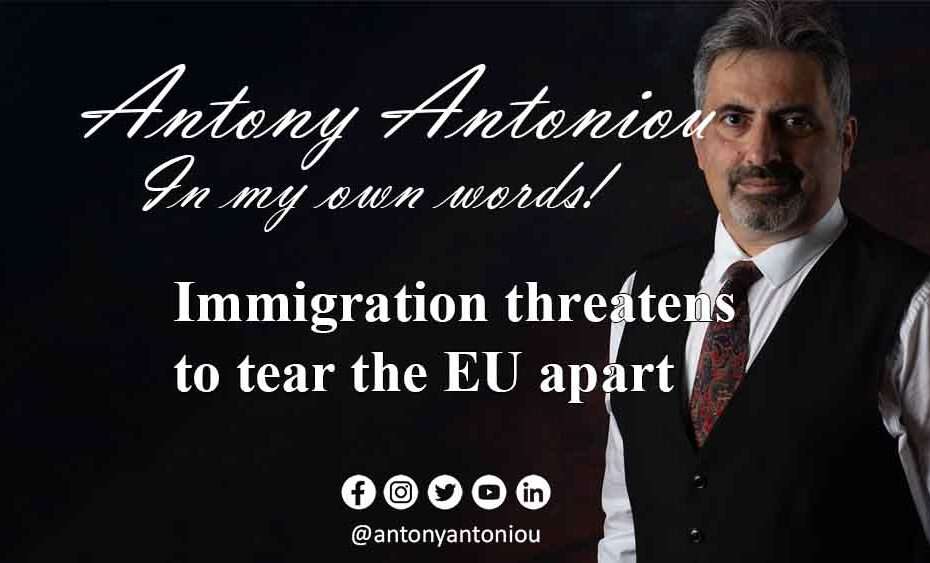Immigration threatens to tear the EU apart
The Crisis, the Critics, and the Consequences
**Introduction**
In recent years, the European Union (EU) has been grappling with a critical and seemingly unavoidable threat – immigration. This divisive issue, which has raised concerns about sovereignty, cultural identity, and the strain on social systems, is examined in this blog post. We’ll delve into the crisis itself, the critics of EU immigration policies, and the far-reaching consequences that could tear Europe apart.
**The Crisis Unfolding**
The EU, once celebrated for its open borders and commitment to freedom of movement, now faces an internal crisis of its own making. It’s an issue that affects both past and present EU leaders, as well as those in the United Kingdom.
While media narratives may downplay it, the reality is that leaders on both sides have the legal tools to address this situation effectively. The question remains: why haven’t they taken more decisive action?
**Critics Speak Up**
Within the EU, the European Convention on Human Rights (ECHR) stands as a symbol of the EU’s influence. However, some argue that the ECHR operates as a puppet of the EU, leading to its inefficacy. According to critics, this is a prime reason why some nations, like the UK, should have reconsidered their involvement in the ECHR long ago.
A central issue for critics is the lack of enforcement concerning illegal immigration and the failure to ensure that legal immigrants, such as students, leave the host nation when required. Critics argue that these oversights are part of a broader plan, though this plan is now showing signs of backfiring.
**The Unintended Consequences**
As the EU’s immigration infrastructure strains under the pressure of mass migration, even staunch supporters of open borders like France and Germany have had to make tough choices. They’ve resorted to enforcing their own borders to stem the tide of incoming immigrants.
Ironically, these nations had previously criticized countries like Poland, which had adopted a zero-tolerance policy towards legal immigration since 2015. Now, they find themselves in a position where they are breaking their own quota laws.
Southern European countries, such as Spain, have also been significantly affected by immigration, although their experiences often receive less media attention. With multiple migration routes, including the Western Crossing, Central Crossing, and Eastern Crossing, these nations have borne the brunt of the crisis.
**A Glimpse of the Future: Cyprus**
To highlight the gravity of the situation, let’s take a closer look at Cyprus. In just a few short years, Cyprus has experienced a dramatic transformation due to an unprecedented influx of immigrants. This Mediterranean paradise, once a favored holiday destination, now grapples with the highest volume of immigration per capita in the world.
The idyllic scenes that once defined Cyprus have been replaced by the harsh realities of a society under pressure. This serves as a stark warning of what might await the rest of Europe and the UK if the immigration issue isn’t addressed promptly.
**Conclusion**
In this turbulent climate, it’s vital that voices are heard. Critics argue that it’s not about civil unrest but about taking a stand for the values, culture, and identity of a nation. It’s about resisting the forces that seek to undermine these foundations.
The immigration challenge in Europe extends beyond its borders and threatens to divide the continent. While the topic is undoubtedly complex and emotionally charged, it is essential to have open discussions and explore solutions that are mindful of the interests of both nations and individuals.
As Europe grapples with this issue, it remains to be seen whether leaders can find common ground to address the immigration crisis and protect the integrity of the EU. Only time will tell if unity can prevail in the face of this pressing challenge.

